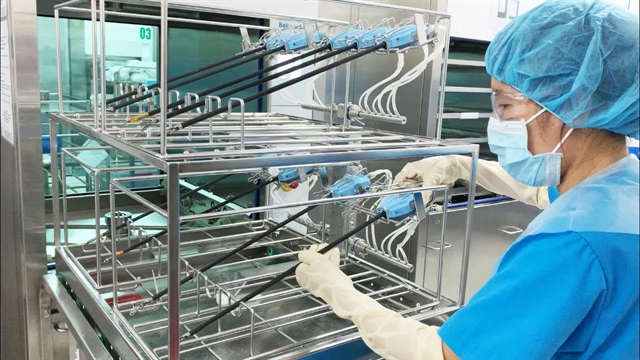 Society
Society


|
HCM CITY — Good practices at hospitals to control infections are key to ensuring patients’ safety, Dr Trần Vĩnh Hưng, director of HCM City’s Bình Dân Hospital told a conference yesterday.
“Control of infections in hospitals is an important element in the process of providing healthcare to patients since hospital-acquired infections and multidrug-resistant bacteria are imminent challenges for global health.”
Last month the World Health Organisation (WHO) updated the list of medical errors and urgent problems related to the control of infections in hospitals.
It said nearly 10 per cent of patients in developing countries got hospital-acquired infections.
“When control is practised well, patients will be taken care of effectively and risks of infections will also reduce sufficiently.”
Nguyễn Thị Thanh Hà, vice chairman of the HCM City Infection Control Society, said infection of surgical incisions also occurs often at hospitals, and so they should pay attention to this.
If practices to ensure safety related to surgeries are not adequate, patients could be burdened with additional treatment costs and also face an increased risk of mortality, she warned.
Hospitals could then face lawsuits, she said.
An inspection conducted by the Ministry of Health found that most hospitals in the country have operating rooms that are not designed safely while the most common errors are failure to follow safety protocols, leading to infections while transferring patients to surgery rooms, she said.
Hospitals should set up intervention programmes to ensure safety with managers, operators, health staff, and patients taking part, she said.
They should also factor in this problem when designing their operation rooms, she said.
Hưng said Bình Dân Hospital, for instance, uses various methods to sterilise surgical tools and others, and its procedures for infections control are very strict and automated.
Dr Lê Thị Anh Thư, the society’s chairwoman, said 187-281 million surgeries are performed each year around the world.
Of them, nearly seven million patients develop complications and one million die, she said. — VNS